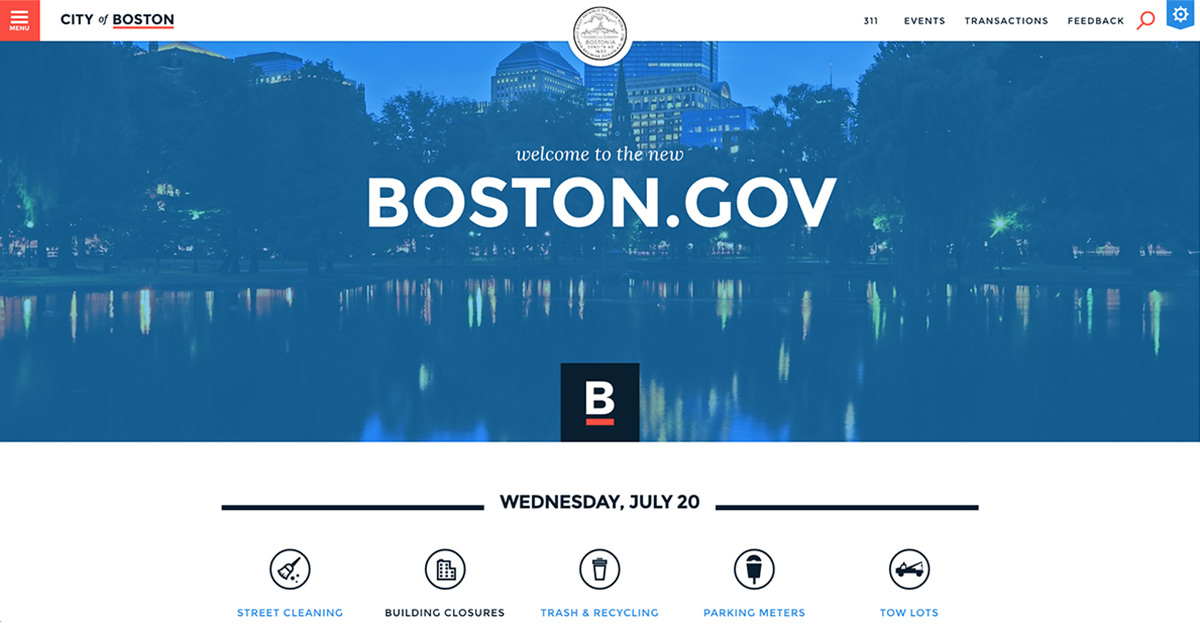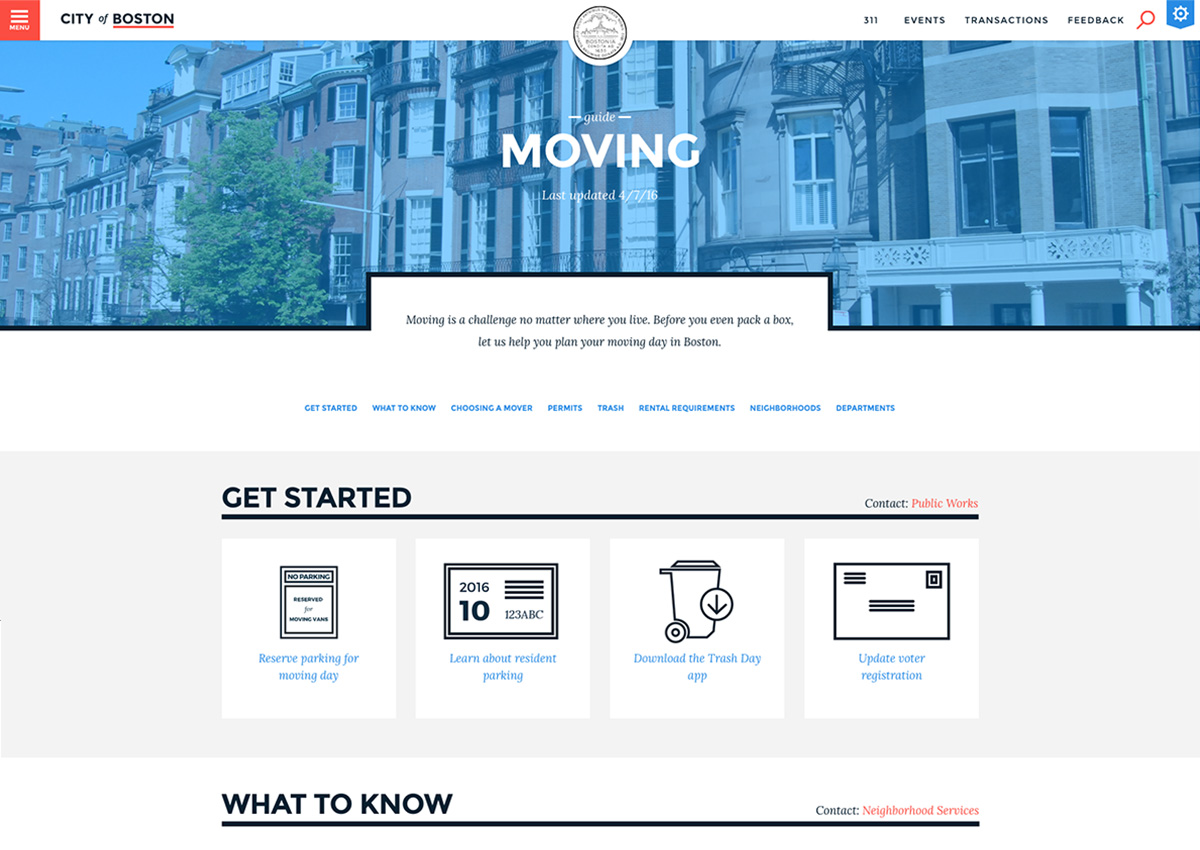City of Boston Launches New Boston.gov Site

Screenshot via Boston.gov
The City of Boston launched its redesigned website Wednesday: Boston.gov. But it’s not done. And it never will be.
“If we’re doing our job right, people are going to see the site improve over time,” says Chief Digital Officer Lauren Lockwood. “It’s our job to not only build tools that are impressive by today’s standards, but that apply to tomorrow’s.”
The website was last redesigned 10 years ago, according to Jascha Franklin-Hodge, the city’s chief information officer—during a time when social media wasn’t as ubiquitous and people weren’t banking online or expecting same-day deliveries from Amazon.
“A lot has changed,” Franklin-Hodge says. “I think the big picture for us is that government is increasingly digital. If we don’t offer a great digital experience, we’re failing our constituents.”
The redesign project formally kicked off in August 2015 with a series of focus groups to determine what was missing from the current website. The overarching critique was that although information was available, it wasn’t accessible. Visitors weren’t using the site’s search functionality because they weren’t guaranteed to receive relevant content.
“We want to change that,” Lockwood says. “The search possibilities are much cleaner. The goal is that we should be surfacing tools and resources for people that are more contextually relevant.”
Now, if someone looks for information on moving to Boston, one of the top results will show information on how to reserve parking for moving day or update their voter registration. And that content will be broken down step by step, rather than presented in the large blocks of convoluted text used throughout the former website.

Screenshot via Boston.gov
By making the information more digestible, the team was also able to make it more mobile friendly, which was critical to the redesign process. Many residents access the internet through their smartphone, so the website needed to be responsive.
“If a site doesn’t work as well on a mobile device, it means you’re giving a worse kind of government service to lower-income communities,” Franklin-Hodge says.
Lockwood notes they are still working on improving load times—a fact confirmed by the Boston.gov Roadmap, a site that highlights what the city is working on next and allows the community to submit ideas for the website and vote on others’ suggestions. Over the last year, the city has been developing its new site in public as a means of transparency and eliciting user feedback. To the team, this project is about more than just creating something beautifully designed that works.
“When people see a website that doesn’t feel lived in or sounds robotic, they aren’t inclined to engage,” Lockwood explains.
That’s why the team started the process by establishing four strategic principles they could share across departments that would serve as design guidelines and influence development: Act as a Helpful Human; Equal Parts Warm and Official; The System Is Vast, Help People Navigate Their Portion of It; and Build an Energizing Environment.
The City of Boston worked with design firm IDEO and open cloud provider Acquia to create a site that was human-centered. Or, in Lockwood’s words, “Welcoming, human, and useful.” Officials even went as far as to make their brand guidelines public to help residents understand the team’s decision-making process.
“Everybody knows what good customer service feels like, and in the 21st century, it can’t just be about picking up the phone or coming into City Hall,” Franklin-Hodge says. “That doesn’t mean the digital experience can’t feel human. Knowing there’s a person on the other end of this, [residents] feel a greater level of trust and are more likely to engage with us or get more civically involved.”
If all goes according to plan, the site will never go through another overhaul, because it will have been regularly updated. Lockwood and Franklin-Hodge compare the process to how Facebook, Google, and Amazon continue to add new features and evolve, and they hope the community views the new site in the same way.
“We don’t want them to say, ‘This is good for a government website,’” Lockwood says. “We want them to say, ‘This is a good website. Period.'”
If you want to learn more about the new website and its future plans, the City of Boston will be holding a Boston.Gov Launch Party Wednesday from 4 to 7 p.m. at the Central Library in Copley Square.


